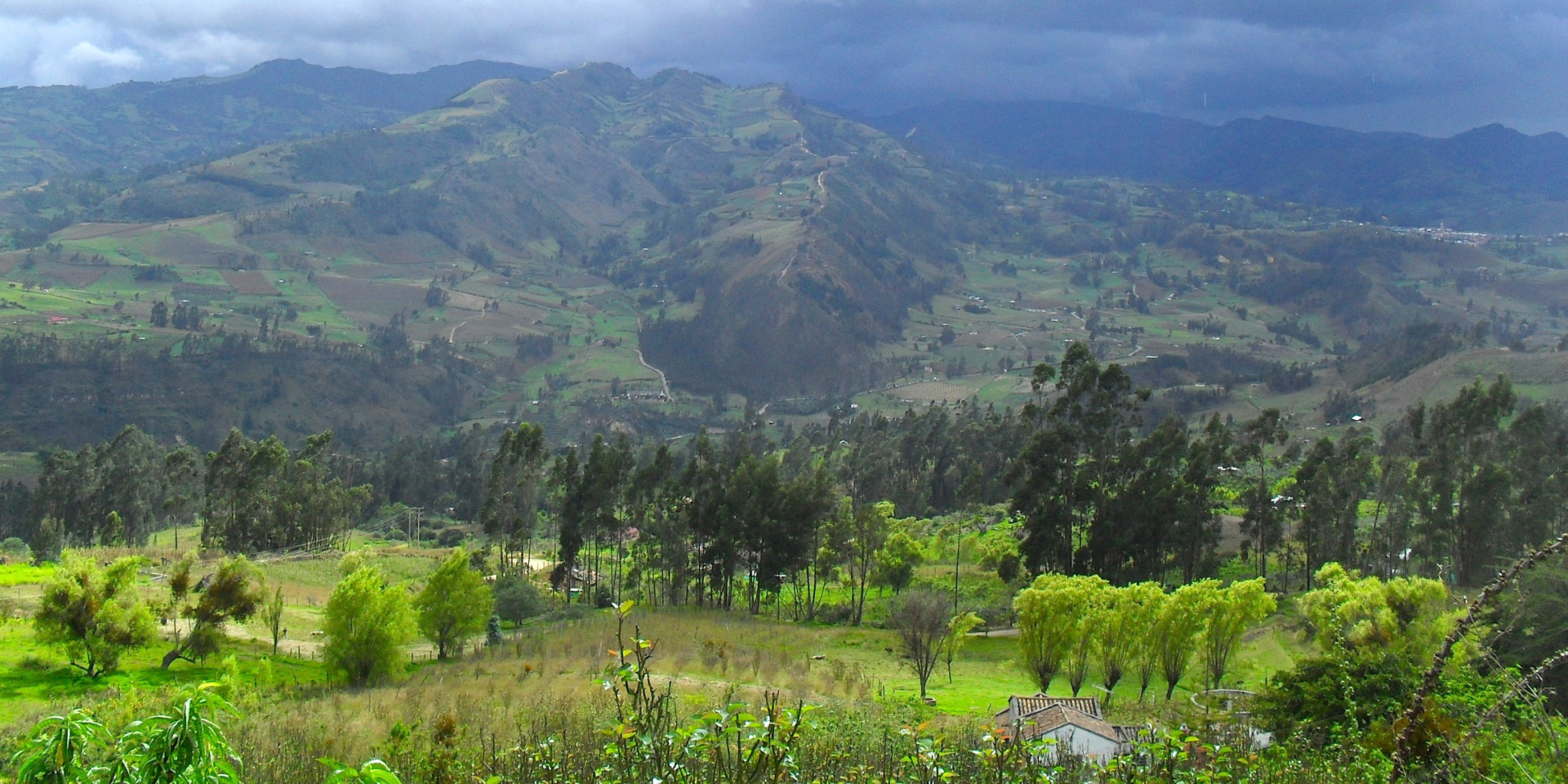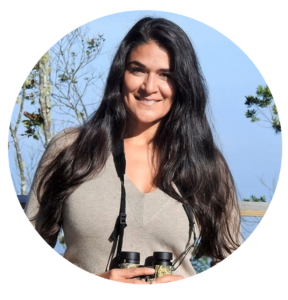
Connecting the Dots Between Women’s Empowerment and Critical Biodiversity Protection
Around the world, women are key knowledge holders on the sustainable use of their local, natural resources, and uplifting their voices is known to have positive ripple effects throughout their communities.
Founded with this premise in mind, Women for Conservation is dedicated to advancing its mission of empowering women through environmental education and reproductive health initiatives. During this event we’ll hear from Sara Inés Lara, Founder and Executive Director of Women for Conservation, who will share how the organization’s programs work to protect and preserve endangered wildlife and their habitats.
Presentation Date: August 25th, 2022
Q+A
Given the positive connection that educating girls and family planning has to climate change, how can we get our political leaders on board?
Voting for, calling, and writing politicians in favor of international family planning initiatives seems to be the best way to support women’s reproductive rights worldwide, while also bettering outcomes for education, sustainable population growth, and natural resource conservation.
While our organization focuses on providing resources to women in Colombia, there are other organizations like Population Connection that are dedicated to U.S. political advocacy work supporting funding for international family planning. Their full advocacy resource page can be found here
One current US bill which could support funding for international family planning services include the Global Health, Empowerment, and Rights (HER) Act. You can learn more about this act and sign the petition here.
How difficult is it for women to obtain contraception in Colombia, has the decriminalization of abortion impacted your work?
While contraception is widely available to Colombian’s living in big cities, it is unfortunately much harder for rural women to access these resources. This is further complicated by the influx of immigrants from places like Venezuela, who do not have insurance and are already at higher risk of domestic violence and economic precarity. Rural women face an additional barrier of having to travel to larger cities to reach health clinics that can provide contraceptive care. Women for conservation is dedicated to making voluntary family planning resources accessible to ALL women, regardless of health insurance coverage, nationality, economic situation, or racial identity.
Although abortion has recently decriminalized abortion during the first 24 weeks of pregnancy, access to safe abortions is still inaccessible to most women in the rural areas where we work, as they would have to travel long distances to reach health clinics that can provide these procedures. Women for Conservation focuses on providing access to contraceptive resources, as there are still many women who do not have access to this basic life-saving health care.
While abortion access does not directly affect the work that Women for Conservation does, it has been reported that this recent decriminalization can potentially prevent tens or even hundreds of thousands of unsafe abortions each year in Colombia. Women facing economic precarity and women of racialized identities are put at the most risk by unsafe abortions, and this new law will undoubtedly save many women’s lives.
Here is a quote from a recent guardian article with data about abortion decriminalization for those who would like to inform themselves more about this issue:
“Reproductive rights groups estimate that as many as 400,000 abortions are performed each year in Colombia, with only 10% carried out legally. During 2020, at least 26,223 unsafe abortions were carried out across Colombia, according to Profamilia – a local reproductive healthcare provider.”
What are the most desired types of family planning services?
Our most popular type of family planning service are contraceptive implants, and we currently have over 1,000 women on our waiting list to get this resource. Tubal Ligations are more popular with mothers who already have kids, although this procedure requires travel to urban health clinics and involves more time commitment, doctors visits, and logistical planning than implants. We just began offering vasectomies this year, and we currently have over 100 men on the waiting list for this procedure.
Women who receive reproductive healthcare also receive free cancer screenings and check-ups, which is extremely important as breast cancer is the cause of the highest number of female deaths from cancer in Colombia. Early detection is key to successful treatment, and this is an incredibly important part of our work, as this is the first cancer screening for many of the women that we work with.
Who are the knowledgeable “educators” that can teach young girls and adolescents about puberty, menstrual hygiene and menstrual health etc..?
We have a whole team of educators that play different roles in reproductive health education. Our partner Profamilia, Colombia’s leading non-profit organization promoting sexual and reproductive rights, provides our Women for Conservation (W4C) women’s groups with nurses, doctors, psychiatrists, and health experts who accompany each family planning campaign to answer questions and make sure local participants are thoroughly informed about their contraceptive options. Just this week we held a conference for W4C women’s groups from five villages in Magdelena with the Santa Marta Mayor’s Secretary of women and gender advocacy, to inform these women community leaders about domestic violence and gender violence prevention. Women for Conservation also has volunteer psychiatrist, who is available by phone for women to call to answer questions, as well as provide counseling services and resources to women experiencing domestic violence.
Our local W4C field organizers also lead school programming on reproductive health and consent in schools in the communities where we work. Our El Dorado W4C Project Coordinator, Kelly Johana Julio Donado, is one example of a local organizer and educator. You can read about some of the recent projects our organizers spearheaded here.
While our partner Profamilia’s website is in Spanish, this website provides an English interview with their Executive Director, Marta Royo, for those who want to learn more about Profamilia’s work in Colombia.
About the Speaker
Sara Inés Lara
Founder & Executive Director, Women for Conservation

In 2003, following her passion for nature and wildlife conservation, Sara Lara became Executive Director of Fundación ProAves, a leading conservation organization in Colombia. Under her leadership, the organization established and managed 17 nature reserves to save endangered species. In 2004, Sara combined her love of nature with her drive to empower women and started the initiative Women for Conservation. This program quickly spread to communities neighboring ProAves’ nature reserves, where local women learned about the importance of safeguarding their natural environments. With this knowledge, they were motivated to develop projects that reduced deforestation, such as producing eco-friendly artisan products and reducing their usage of wood-fueled stoves. It is her life mission to protect the natural world so that we all may have the opportunity to heal through nature.
